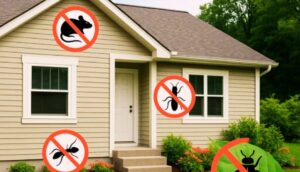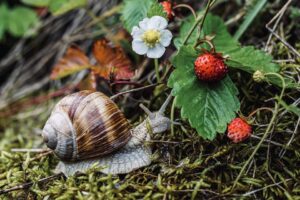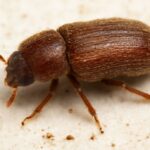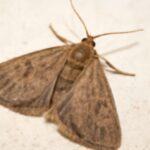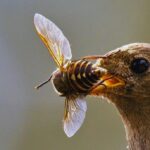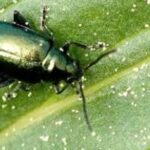Organic Scale Insect Control: Top 5 Natural Remedies
What Are Scale Insects and Why Should You Care?
If your plants have sticky leaves, yellowing foliage, or strange shell-like bumps, you’re likely dealing with scale insects. These tiny sap-sucking pests cling to stems and leaves, quietly draining your plant’s nutrients and weakening it over time.
I have dealth with these tiny insect pest over the years both indoors and on outdoor plants, what I found interesting about these little critters is they will remain motionless on garden plants what makes the perfect cammarflourge but although they are motionless the damage is being done because in this state they are feeding on your garden plants. Chemical pesticides may offer a quick fix, but often come with environmental and health risks.
That’s why more gardeners are turning to natural-scale insect control—safer for plants, pets, pollinators, and people.
Below are the top five organic remedies for scale insects, along with pros, cons, and best-use tips to help you choose the right solution.
As an Amazon Associate, I earn from qualifying purchases
1. Neem Oil Spray (Cold-Pressed & Organic)
Neem oil is one of the most effective natural pesticides for scale insect control. It contains azadirachtin, which disrupts insect growth and feeding. Check Price & Read Reviews on Amazon.
Benefits:
-
Effective against scale, aphids, whiteflies, and spider mites
-
Safe for beneficial insects like bees when used properly
-
Offers systemic protection by being absorbed into plant tissue
-
Eco-friendly and biodegradable
Drawbacks:
-
Strong odor
-
Results take time
-
Can cause leaf burn if applied during peak sunlight
2. Insecticidal Soap (Potassium Fatty Acid Salts)
This natural soap breaks down the protective wax layer of scale insects, causing them to dehydrate. Check Price & Read Reviews on Amazon.
Benefits:
-
Quick action—visible results within hours
-
Safe for pets and children
-
Suitable for both indoor and outdoor use
-
Low environmental impact
Drawbacks:
-
Must directly contact pests
-
Requires frequent reapplication
-
May damage sensitive plants
3. Horticultural Oil (Mineral or Vegetable-Based)
Horticultural oils smother scale insects by coating their bodies and blocking respiration. Check Price & Read Reviews on Amazon.
Benefits:
-
Targets all life stages: eggs, nymphs, and adults
-
Excellent for winter applications on dormant plants
-
Available in organic formulations (canola or cottonseed oil)
-
Non-toxic to humans and animals
Drawbacks:
-
Temperature-sensitive
-
Risk of plant sensitivity
-
Requires complete coverage for effectiveness
4. Beneficial Insects (Ladybugs & Lacewings)
Nature’s pest control—ladybugs and lacewing larvae feed on scale insects and their eggs. Check Price & Read Reviews on Amazon.
Benefits:
-
100% natural and chemical-free
-
Provides long-term pest control
-
Safe for all plants and pollinators
-
Great for organic gardening and greenhouse use
Drawbacks:
-
Ineffective indoors due to containment issues
-
Climate-sensitive; thrive in warm, humid environments
-
Short shelf life once purchased
5. DIY Rubbing Alcohol Spray
A homemade insect control spray using isopropyl alcohol and water can kill scale insects on contact. Check Price & Read Reviews on Amazon.
Benefits:
-
Affordable and easy to make
-
Effective for spot treatment
-
Customizable—add dish soap or essential oils
Drawbacks:
-
Time-consuming to apply
-
Can cause leaf damage if too concentrated
-
Not effective for widespread infestations
FAQs: Organic Scale Insect Control Tips
How can I spot a scale insect problem early?
Look for sticky sap (honeydew), yellowing or curling leaves, and tiny brown or tan bumps along plant stems and undersides of leaves.
Can I use multiple natural remedies together?
Yes, alternating treatments like neem oil and insecticidal soap is safe—just don’t mix them in the same bottle. Always test first.
Are scale insects dangerous to people?
No, they don’t bite or sting. But the residue they leave behind can lead to mold and attract other pests.
How often should I apply organic treatments?
Insecticidal soap may be needed every 3–7 days, while neem oil is typically applied weekly. Always follow product directions.
How can I prevent future infestations?
-
Inspect new plants before bringing them home
-
Keep your plants healthy with proper watering and airflow
-
Prune infected branches early
Conclusion
Controlling scale insects naturally is not only safer—it’s also highly effective when done consistently. From neem oil sprays to beneficial insects, these natural remedies for scale insects offer powerful results without harmful chemicals. For best outcomes, combine two or more methods tailored to your space and plant type. Early detection and regular care are key to keeping your plants lush, healthy, and free of pests.







